Photographer Spends Two Years Building Enormous Wet Plate Camera and Bus Darkroom

Most wet plate photographers stick to studio portraits, and there's a very good reason for this. Not only can the equipment be heavy, but working quickly is essential. The photographer needs to coat, expose, fix, and develop the plate within a very short timeframe, so there must be a darkroom on site. But photographer Bill Hao didn't let these obstacles stop him from fulfilling his dream to take large landscape photos using the wet plate collodion process. In fact, he spent two years building his own giant camera and converting a bus into a portable darkroom so that he could take his wet plate photography on the road.
Hao's love of photography began when he was a teenager. At the time, he used film and would develop his own images. Since 2015 he's been immersed in the wet plate process, finding it a satisfying alternative to digital technology. “I'm not saying that the old process is better than digital,” he tells My Modern Met. “Of course, today's digital technology is simple, fast, and great. But for me, the image capture techniques of the old days, especially the wet collodion process, offer better quality, more tone, more detail, and a larger format. An image made with the old process looks more realistic and can be preserved for longer.”
Passionate about landscape photography, Hao built his first 11″x11″ camera in 2015. At that time, he also converted a Dodge Caravan into a small darkroom. But, as time went on, he was looking to go bigger, and, with wet plate photography, the only way to do that is to scale up. So, in 2019, he set about creating something even bigger.
View this post on Instagram
It took him two years—and a lot of trial and error—but in the end, he was able to create a camera that would produce the size he desired. And, most importantly, was something that he would be able to set up and operate himself. When completely open, the camera is 52″x37″x70″ and weighs 110 pounds. The lens and film holder adds an additional 44 pounds. Each of its three tripods weighs 22 pounds.
The glass plates that Hao uses are 3 mm thick and measure 32″×48″, giving him the large format that he's after. But, of course, the camera is only half the battle. So, he also spent eight months converting a bus into a darkroom, ensuring that he would have space for all the chemicals required, as well as electricity and water. As Hao likes to go off the grid in search of beautiful scenery, being self-sufficient was key.
Now he spends ample time in the Canadian Rockies. It's an environment he's quite familiar with after having operated a tour company in the area for 16 years. His setup gives him the freedom to spend large stretches of time in the Rockies, perfecting the difficult techniques of wet plate landscape photography.
“During my time working, I have observed how the landscape changes [and] how beautiful natural features disappear,” he shares. “My collodion plate may last for two hundred years, but some landscapes may not—they may disappear in the future. This is why I started using the wet collodion process to record them, and anyway the beautiful view for everyone is great!”
Photographer Bill Hao is passionate about wet plate collodion photography.
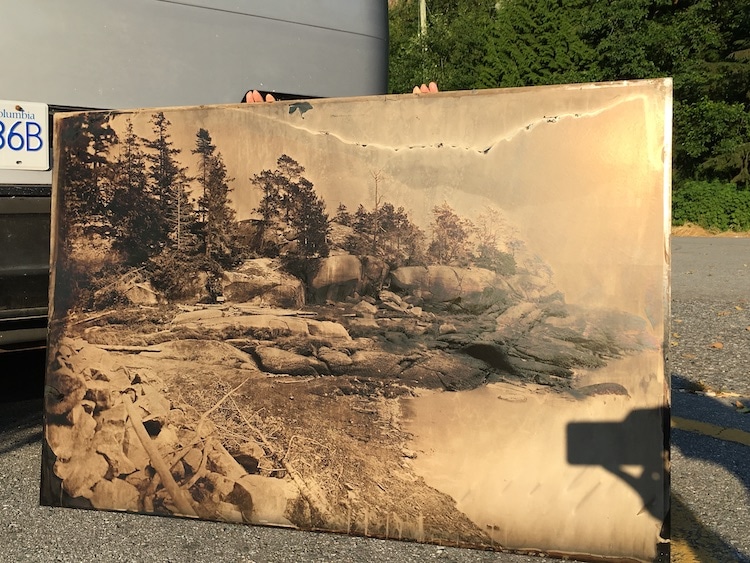
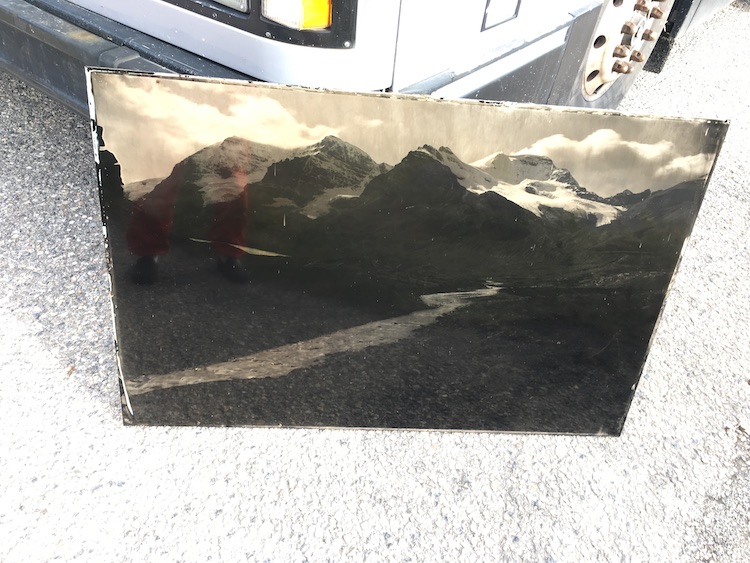
But he wanted to take his work on the road, so he spent two years building a large format camera.
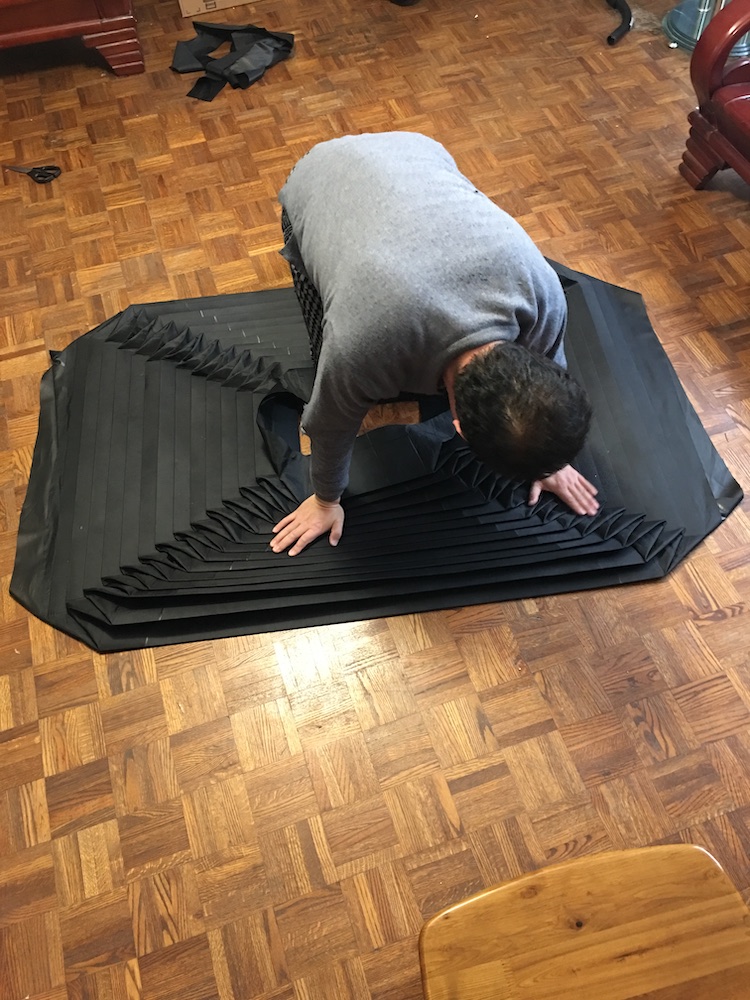
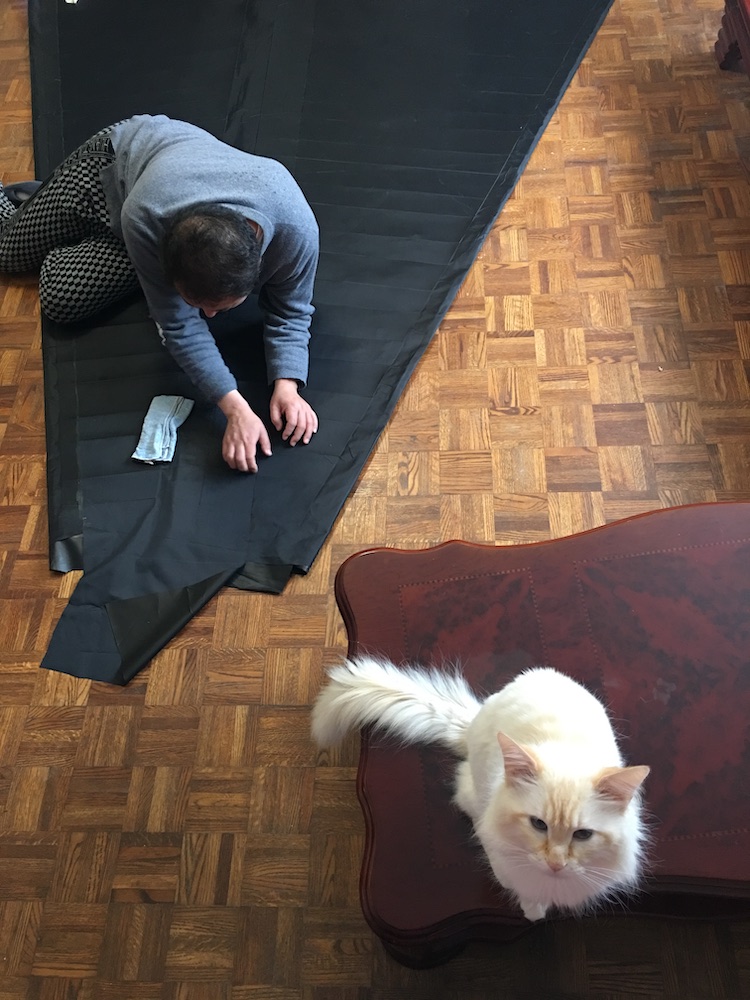
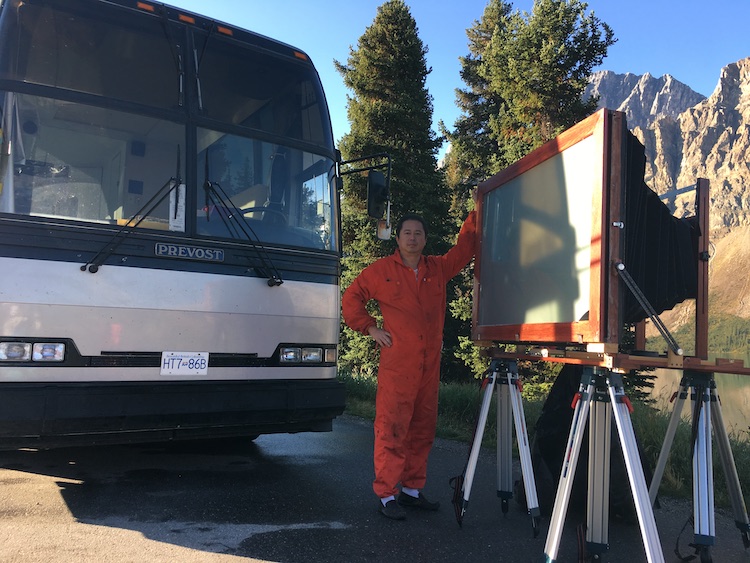
It uses 32×48 inch glass plates and the body alone weighs 110 pounds.
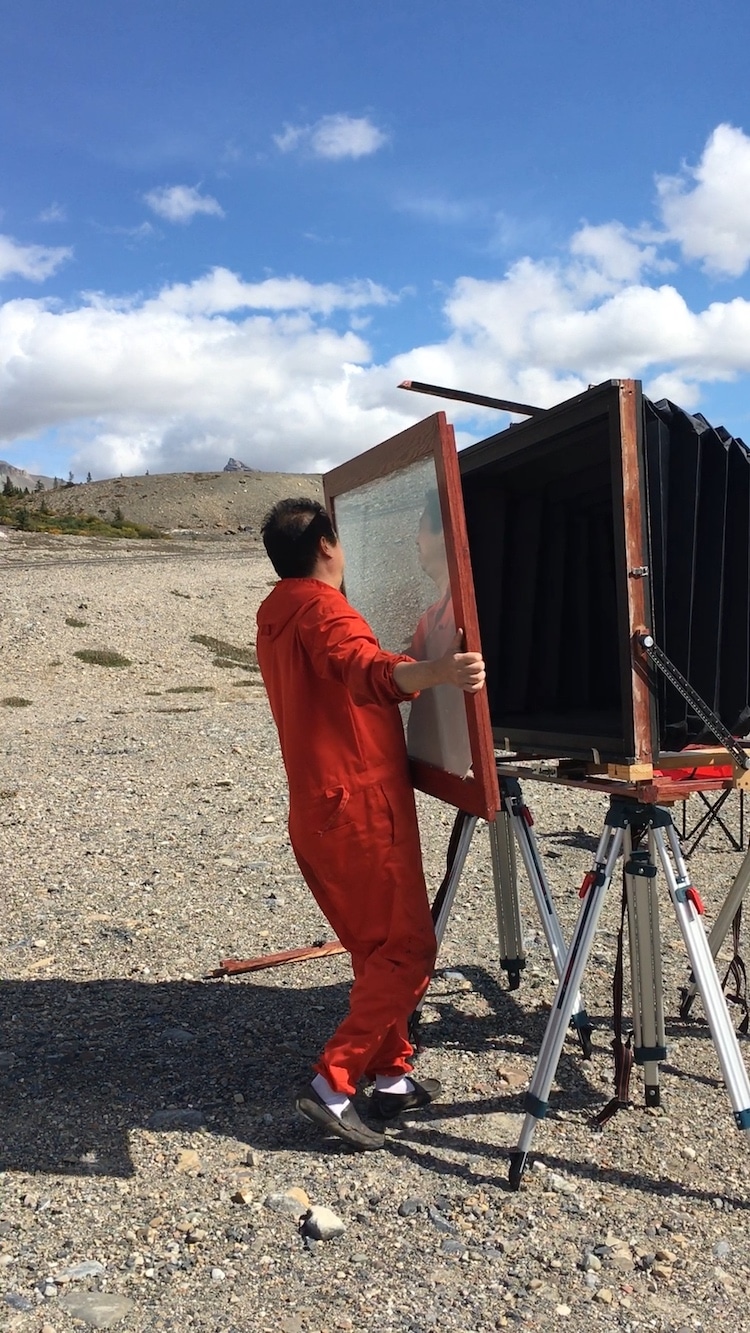
He also spent eight months converting a bus into a portable darkroom.
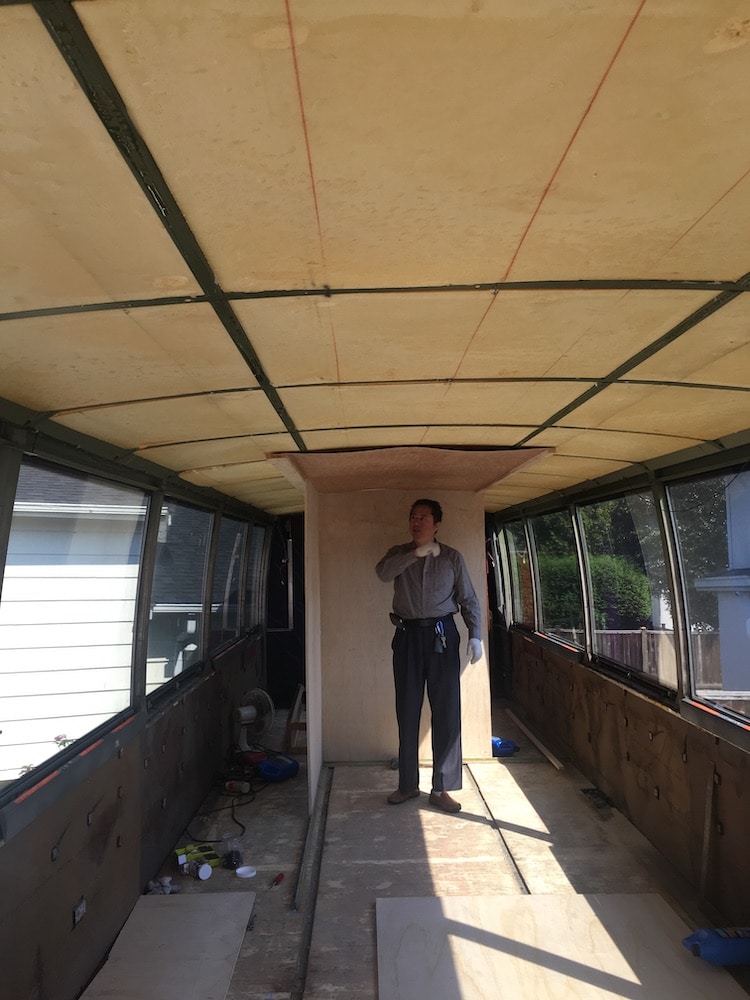
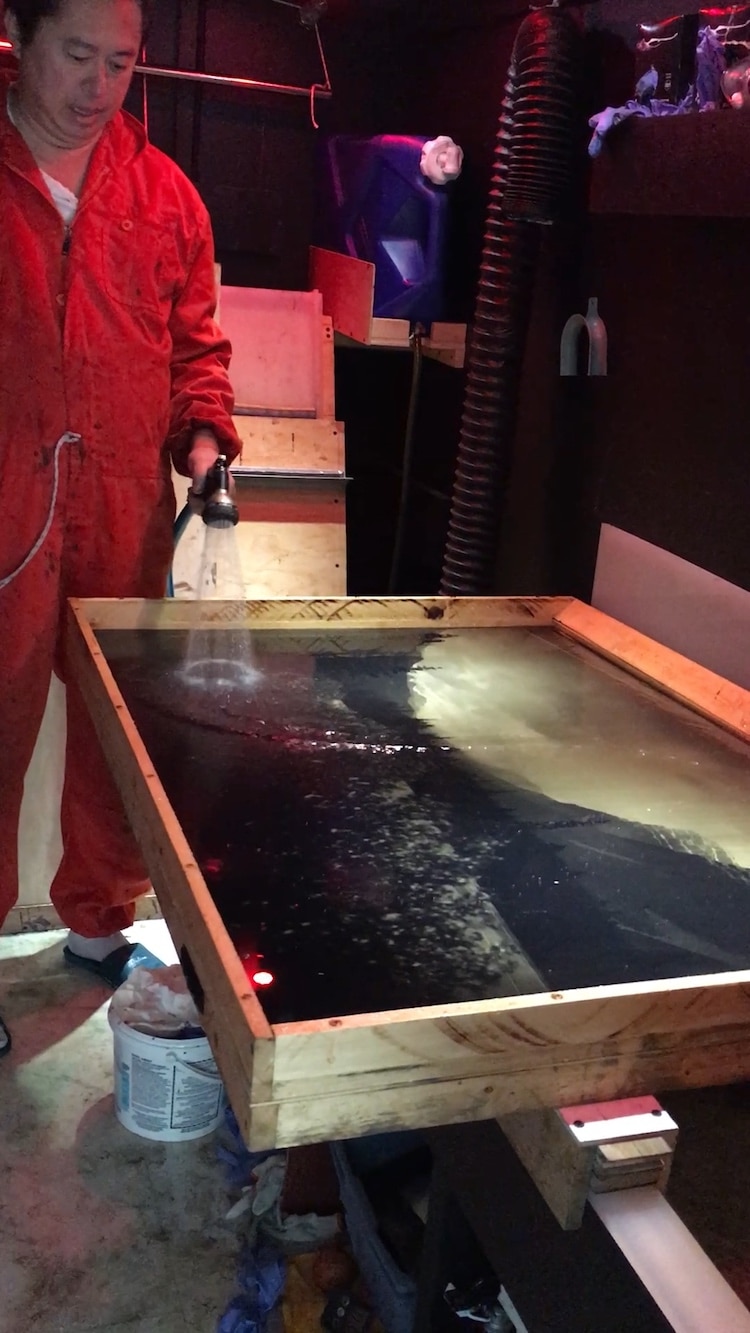
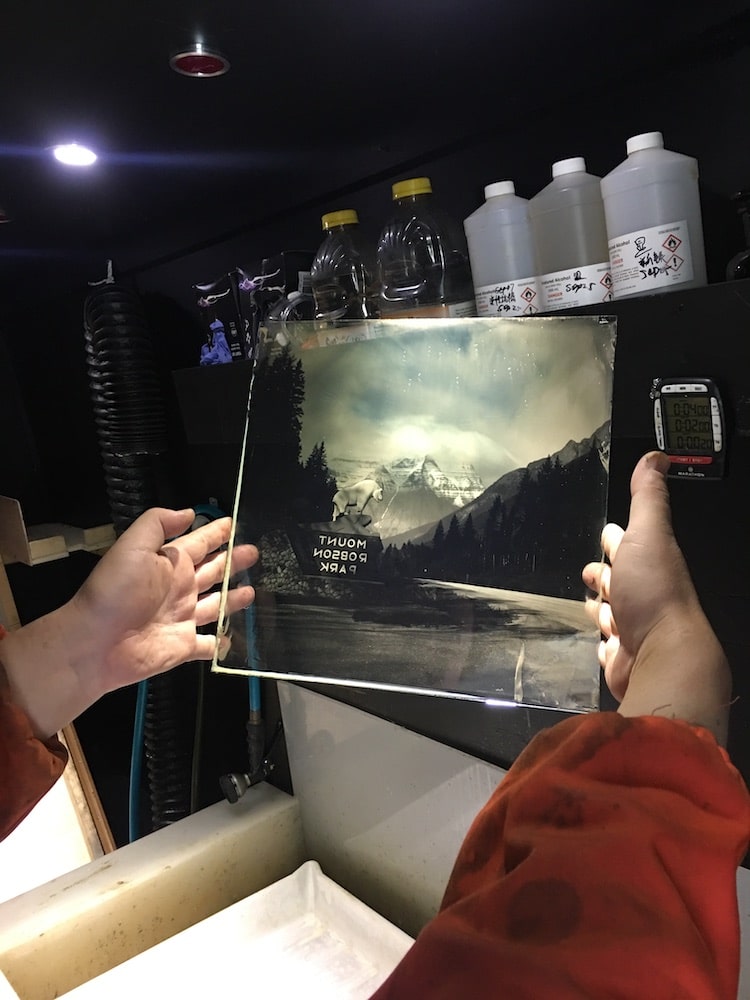
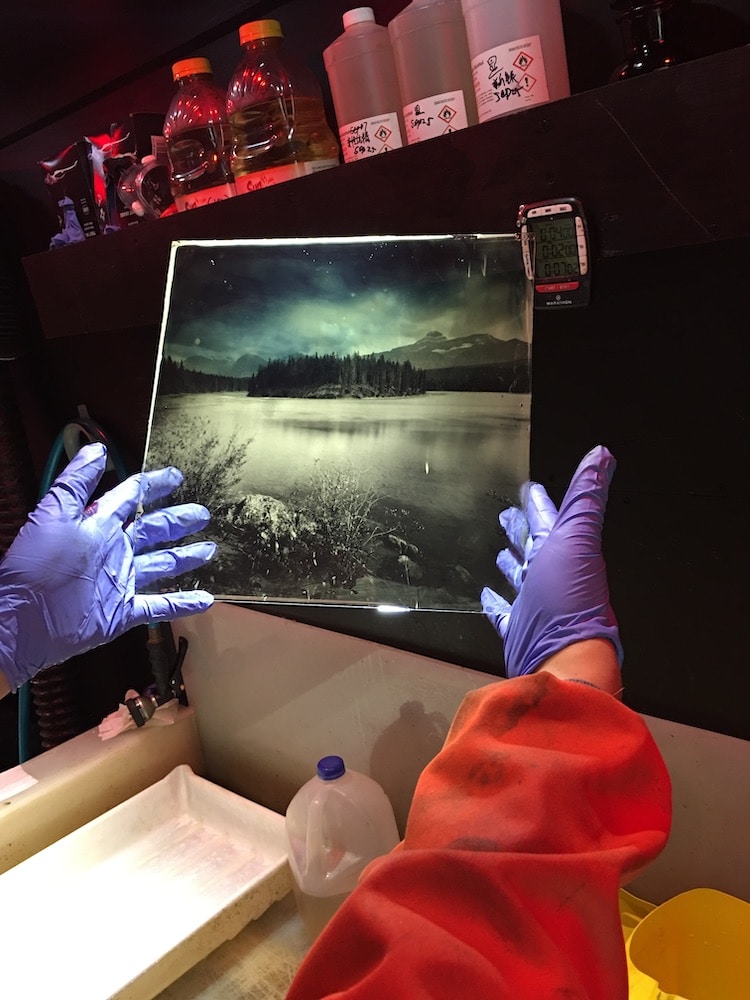
Now, he's able to spend long stretches off the grid in the Canadian Rockies and perfect his wet plate photography.
View this post on Instagram
View this post on Instagram
View this post on Instagram
Bill Hao: Instagram
My Modern Met granted permission to feature photos by Bill Hao.
Related Articles:
Wet-Plate Collodion Technique Applied to Old Tin Cans
Creating a Time Machine with Wet Plate Collodion Prints
Photographer Turns His Tricycle into a Portable Wet Plate Photography Darkroom
Man Transforms a $200 Camper Trailer into a Giant Functional Camera and Darkroom
READ: Photographer Spends Two Years Building Enormous Wet Plate Camera and Bus Darkroom
0 Commentaires